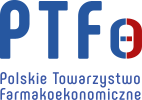Asthma - is there an association between the quality of life and the levels of alexithymia?
-
Copyright
© 2012 PRO MEDICINA Foundation, Published by PRO MEDICINA Foundation
User License
The journal provides published content under the terms of the Creative Commons 4.0 Attribution-International Non-Commercial Use (CC BY-NC 4.0) license.
Authors
Methods: Alexithymia was assessed with the TAS- 20 (Toronto Alexithymia Scale). The prevalence of this disorder in patients with asthma was compared to that in healthy subjects. Quality of life was evaluated with: AQLQ by Juniper for asthmatics. The associations among alexithymia, and the quality of life were estimated by data analysis. The data were analyzed using Pearson correlations, t-Student test. A p value ≤ 0.05 was required for statistical significance.
Results: Fifty healthy people and fifty one asthmatic outpatients of Military Institute of Medicine in Warsaw, Poland participated in the study. Twenty percent of asthmatics and only four percent of healthy people reported high alexithymia scores. A higher alexithymia score was associated with worse quality of life.
Conclusions: The prevalence of alexithymia is higher in patients with asthma. The coexistence of asthma and alexithymia is associated with deterioration of patient's quality of life.
In the world, about 300 million people are affected by asthma. There are four million patients with asthma in Poland [1]. Experts of GINA (Global Initiative for Asthma) indicate that only half of asthmatic can achieve good control of illness symptoms. Psychological factors like alexithymia (disorder of affect regulation) can be one of the reason [2-8]. Only a few authors tried to define the relationship between alexithymia and asthma.
Shortness of breath – typical asthma symptom is very subjective feeling. That's why for evaluation of the course of the disease, not only pulmonary function tests but also patients' quality of life questionnaires should be used. Following the WHO definition of health, health related quality of life (HRQL) can be defined as the physical, psychological, and social domains of health, as perceived by the patient, which are influenced by the patient's experiences, beliefs, and expectations of their disease and treatment.
There have been many studies on the quality of life for patients with bronchial asthma [9-13] but the association between alexithymia and patient's quality of life has not been explained yet.
The aim of the study was to:
1. Determine the prevalence of alexithymia in patients with asthma,
2. Evaluate the associations between the quality of life and the levels of alexithymia.
Methods
The study protocol was approved on 03/02/2007 by the Bioethics Commission of the Military Medical Institute in Warsaw - Resolution No. N404 111 32/3491
The study comprised 101 people from Warsaw and its environs (fifty one asthmatic outpatients of Military Institute of Medicine in Warsaw and fifty healthy subjects) without pulmonary (other than asthma), cardiovascular or neoplastic diseases, with at least medium education.
Alexithymia was assessed in both groups by the TAS-20 (Toronto Alexithymia Scale) which consists of three subscales: 1) difficulties in identifying feelings (IDE), 2) difficulties in communicating, discrebing feelings (COM) 3) externally oriented thinking (EOT) [14-16]. Those who scored below 52 points were classified as non-alexithymic, between 52-60 - borderline alexithymic and those who scored more than 60 were classified as alexithymic [14]. The prevalence of this disorder in patients with asthma was compared to healthy subjects .
The quality of life was evaluated only in the asthmatic group by Juniper AQLQ (Asthma Quality of Life Questionnaire) [17,18] which consists of four subscales (domains): D1- symptoms; D2-activity limitation; D3-emotional function; D4-environmental stimuli. The greatest value of the overall indicator of quality of life that can be achieved using the AQLQ is 7 and it should be interpreted as the best quality of life (lack of symptoms and limitations caused by illness).
The data was analyzed using Pearson correlations, linear regression and analysis of variance (ANOVA) in SPSS. A p value ≤ 0.05 was required for statistical significance.
Results
Fifty healthy persons (20 male, 30 female, mean age 40 years ± 11) and fifty one outpatients of Military Institute of Medicine in Warsaw, Poland (20 male and 31 female with asthma; mean age 46 years ± 12) participated in the study. Twenty percent of asthmatics (20%) turned out to be alexithymic (TAS-20≥61), 23% reported borderline alexithymia scores (TAS-20 between 52-60), and 57% reported low alexithymia scores (figure 1). Four percent of healthy people reported high alexithymia scores, 6% - borderline alexithymia, 90% - low alexithymia (figure 1). Alexithymia mean scores were not statistically different across sociodemographic variables. Patients with asthma had significantly higher TAS-20 global scores as compared to healthy people [(mean scores: 48.56 ± 12.67 vs. 40.06 ± 9.58 (p = 0.0001)]. The analysis of the data revealed that alexithymia and its elements (IDE, COM and EOT) are significantly negatively related to quality of life (AQLQ) and its various domains. The strongest dependency occurred between total TAS-20 and AQLQ (r=-0.30, p=0.0001)(table 1.).
Table 1. Correlations between TAS-20 and AQLQ in the study group
| IDE | COM | EOT | Total TAS-20 | ||
| AQLQ | Pearson’s linear correlation (r) | -0.40 | -0.46 | -0.47 | -0.30 |
| Level of significance (p) | 0.003 | 0.001 | 0.02 | 0.0001 | |
| D1 | Pearson’s linear correlation (r) | -0.35 | -0.44 | -0.44 | -0.30 |
| Level of significance (p) | 0.01 | 0.001 | 0.03 | 0.001 | |
| D2 | Pearson’s linear correlation (r) | -0.39 | -0.44 | -0.46 | -0.30 |
| Level of significance (p) | 0.004 | 0.001 | 0.02 | 0.001 | |
| D3 | Pearson’s linear correlation (r) | -0.35 | -0.45 | -0.44 | -0.31 |
| Level of significance (p) | 0.01 | 0.001 | 0.02 | 0.001 | |
| D4 | Pearson’s linear correlation (r) | -0.42 | -0.40 | -0.23 | -0.40 |
| Level of significance (p) | 0.002 | 0.003 | 0.1 | 0.002 | |
Discussion
When inflammatory etiology of bronchial asthma was discovered, it was believed that treatment with corticosteroids allows for good control of asthma symptoms. Unfortunately, it was shown that anti-inflammatory treatment is not efficacious enough and sometimes the intensity of asthma symptoms is affected by psychological problems, like anxiety, depression and alexithymia [2,5,19].
Alexithymia is a personality trait characterized by a limited ability to identify and describe emotions [20]. Alexithymic is someone who defines emotions in terms of somatic sensations or behavioral reactions [20].
Some authors presented data demonstrating the frequent occurrence of alexithymia among patients with asthma, especially severe and difficult (near-fatal asthma) [3,4,21,22].
Another analysis showed that patients with asthma and alexithymia, are more vulnerable to more frequent and longer hospitalizations because of asthma exacerbations [3, 23]. Patients can often underestimate the severity of asthma exacerbation because of the difficulty in distinguishing illness symptoms from somatic signs of emotional arousal [4,24].
GINA experts reveled that patient's non compliance is very frequent element disturbing good control of disease [19]. Compliance to treatment depends on many factors, mainly on patients' believes, knowledge about the disease, trust in the doctor [19]. That's why recently increasing attention is paid on subjective patient's evaluation of his psychosocial and health status. Evaluation of the quality of life is one of the best non-medical methods to measure it. Quality of life is also important element of pharmacoeconomic evaluation of asthma as a social and economic problem in many countries.
There have been many studies on the quality of life for patients with bronchial asthma. These studies focus on the relationship between health related quality of life and many other factors like: the type, severity of symptoms, drugs, education, gender, age, mental disorders, etc. [9-13].
The association between alexithymia and asthma control or patient's quality of life has not been explained yet. Kelly Chugg [25] in 2009 presented the pilot study in the group of 25 asthmatic patients. She found that high levels of alexithymia was associated with worse asthma control score, poor adherence and worse quality of life.
That study revealed that the prevalence of alexithymia was higher for patients with asthma. The coexistence of asthma and alexithymia was associated with deterioration of patient's quality of life.
Conclusions
It seems reasonable to claim that alexithymia can modulate illness perception and quality of life [26,27]. It is therefore reasonable to test if the emotional education of patients with asthma can improve their compliance, quality of life or symptoms control.














